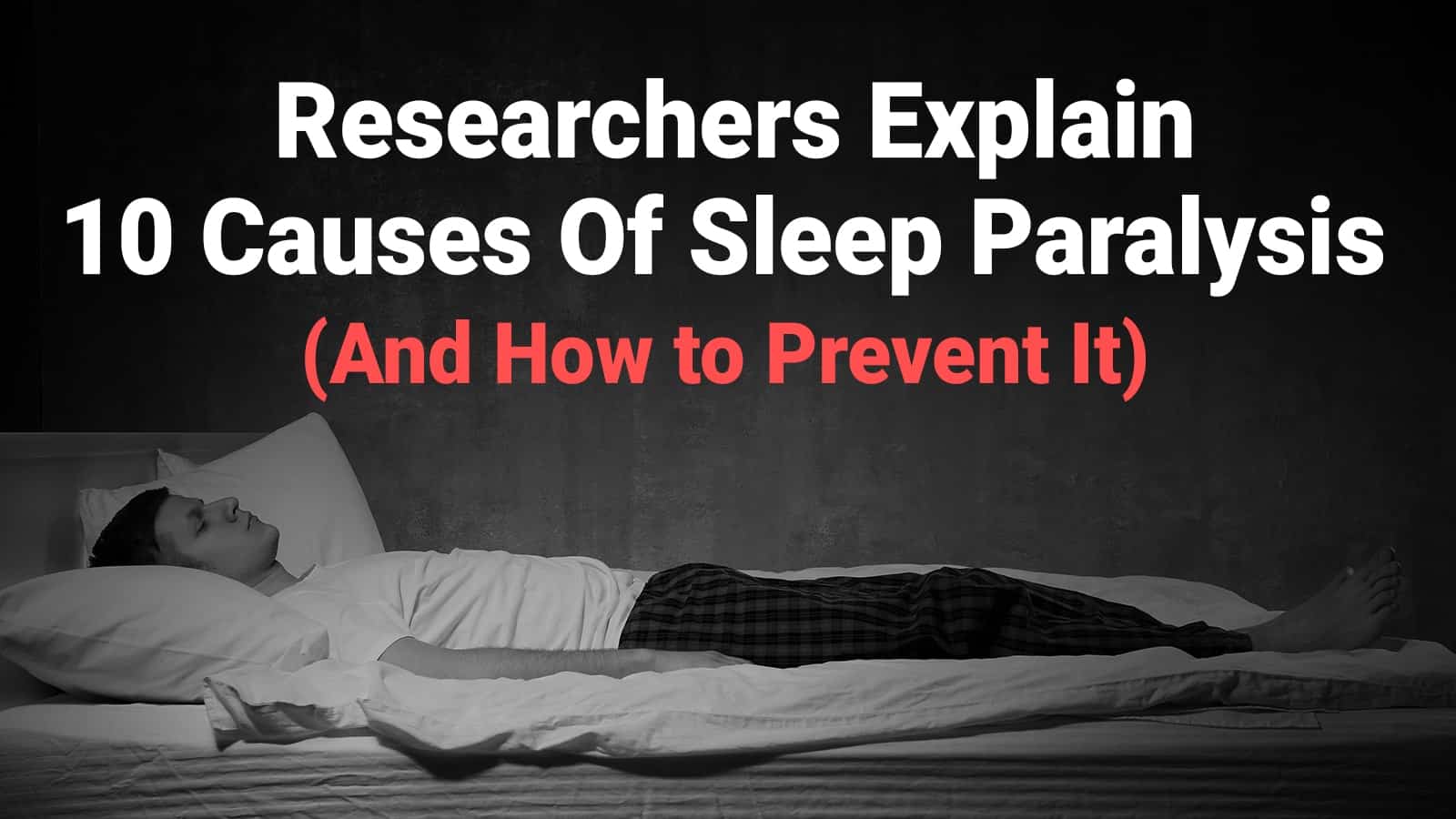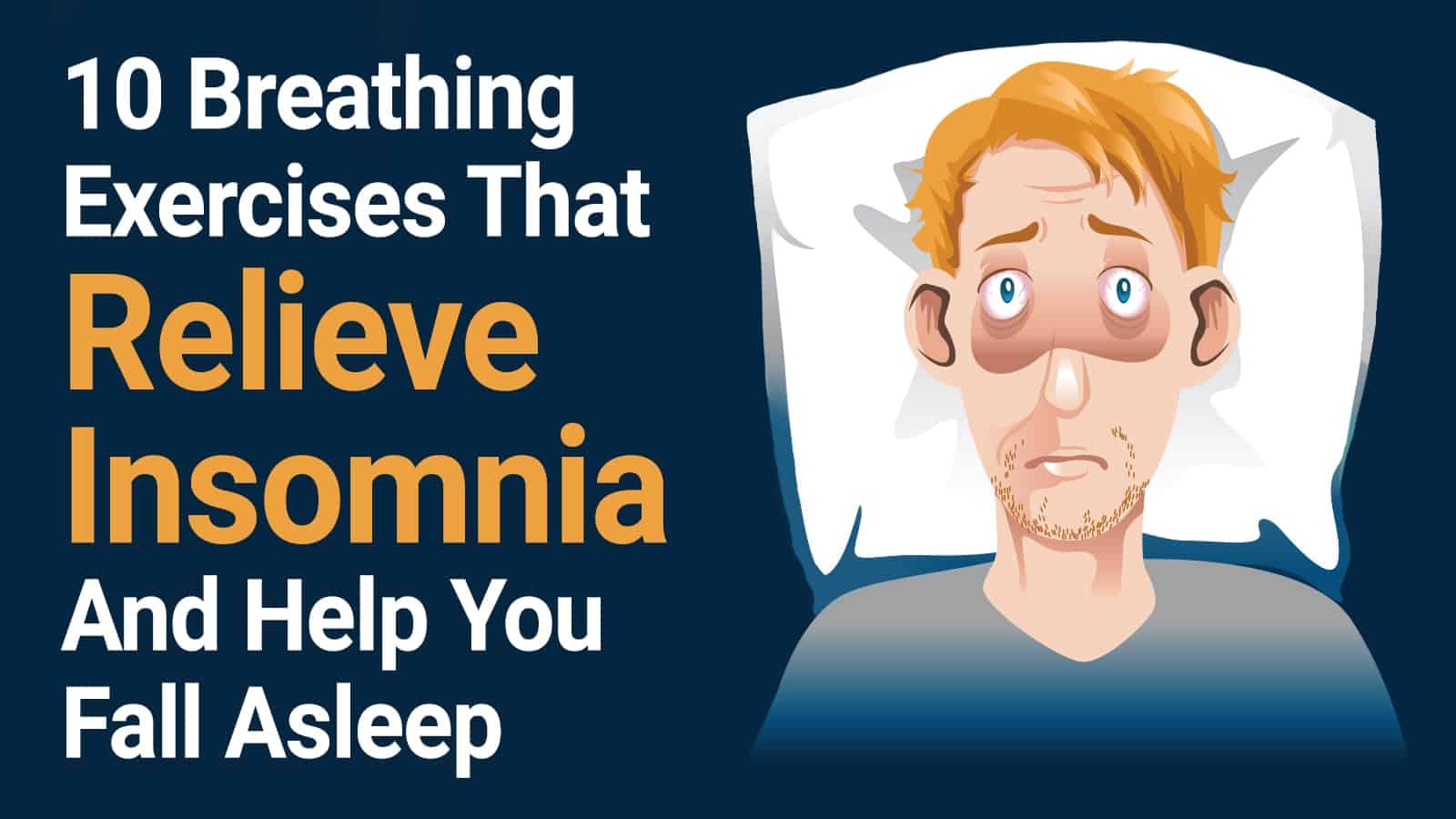If you have never experienced sleep paralysis, consider yourself very fortunate; the condition is one denoted by impaired breathing, an inability to move, and hallucinations. For many people, the experience is something akin to a disconnect between the brain and the body. To say this an unpleasant experience would be a gross understatement. This condition typically occurs during REM sleep, a pattern of sleep characterized by rapid eye movement along with shortness of breath and a rapid pulse rate. In this article, we will detail some of the more common causes of sleep paralysis, ways to prevent it, and how to wake yourself up if you find yourself confronted with such a condition.
WHAT CAUSES SLEEP PARALYSIS?
As far as what causes one to become paralyzed while sleeping, there are many factors that can contribute to this phenomenon. Nonetheless, 10 of the most common factors include
- An inability to regulate REM sleep
- Disrupted Rem
- Sleep deprivation
- Stress
- Mental illness
- Sleeping positions
- Narcolepsy
- Sleep apnea
- Seizures
- Heart attacks and strokes
Having identified 10 common sleep paralysis contributors, let’s take a moment to establish a nexus between them and the resulting condition:
An inability to regulate REM and Disrupted REM can both play a role in identifying who will likely be afflicted with sleep-related paralysis. To help put all of this into context, the body naturally enters into a muscle relaxation state known as atonia while sleeping, which inhibits our ability to act out scenarios we may be experiencing in our dreams. To further illustrate this point, if you were experiencing a violent dream and suddenly began flailing around, you could unintentionally injure yourself or the person who shares your bed. Unfortunately, for many people, this natural occurrence can manifest itself in the form of paralysis while sleeping and, in some cases, while awake.
Sleep deprivation and stress can also result in sleep paralysis. In fact, sleep-related paralysis, as a result of being sleep deprived, is especially common among those who work varying shifts where sleeping patterns are unpredictable and change frequently.
Mental illness can result in a number of behavioral health problems, but sleep paralysis can also be a byproduct of certain disorders like anxiety and depression, for example. If drugs or alcohol are added to the equation, this will further complicate matters. This is especially true for those who have family members struggling with the same condition as genetics can influence one’s susceptibility to sleep paralysis.
Sleep positions can trigger sleep-related paralysis while you sleep; in fact, those who favor a supine sleep position are often the same ones who struggle with the condition the most. However, it should be noted that some people who sleep on their stomach or on their side also struggle with this condition to some degree. All in all, there is no optimal sleep position when it comes to avoiding this condition, but sleeping on your stomach or side can lower your chances of enduring this otherwise unpleasant experience.
Narcolepsy and sleep apnea have both been linked to sleeping paralysis, as they can both result in fragmented sleep, which coincidentally is one of the primary contributors of this condition.
Heat attacks, strokes, and seizures are some of the medical conditions that many suggest are related to paralysis while sleeping. Although there is no scientific evidence to support these claims, it stands to reason that any medical condition that impedes restful, restorative sleep could trigger the condition.
SLEEP PARALYSIS TREATMENT
Now that we have a basic understanding of sleep-related paralysis, let’s focus our attention on treatments. When it comes to treatment options, surprisingly there are not many. Most of the information related to this topic pertains to improving your overall sleeping habits as a corrective measure. That said, treating the underlying conditions that contribute to sleep-related paralysis is a great way to avoid an episode. For example, seeing a therapist to help resolve feelings of anxiousness or depression would be beneficial; the same also holds true for medical conditions. You should see a physician to address in any medical conditions that prevent you from getting uninterrupted sleep.
WHY YOU SHOULD IMPROVE YOUR SLEEPING HABITS
Improving your sleeping habits can help you not only get a better’s night rest but also aid avoiding episodic sleep-related paralysis. Having said that, let’s take a look at what good sleep habits entail:
MAKE SLEEPING YOUR NUMBER ONE PRIORITY
Although this may seem obvious, bedtime is intended for sleeping. So don’t deprive yourself of deep, restorative sleep by watching television or surfing the internet while in bed as these activities will keep you up longer. Also, you should aim to establish a sleep time and adhere to that schedule. It’s important to note that a sound sleep schedule can improve your circadian rhythm, the body’s clock that allows us to fall asleep and get a good night’s rest. Lastly, optimizing your circadian rhythm can be as simple as going to bed at the same time every night.
CHOOSING A COMFORTABLE SLEEP ENVIRONMENT
Your sleep environment can play a tremendous role when it comes to sleep quality; as such, you should choose an environment that is conducive to sleeping, meaning a space that is cool, comfortable and, most importantly, dark.
AVOIDING STIMULANTS
Stimulants can be a barrier between you and a good night’s sleep; as such, it would be in your best interest to avoid caffeinated drinks, alcohol, and nicotine products right before bed. Why are stimulants so bad, you ask? Well, they can keep you awake, especially if they’re consumed six hours before going to bed. As far as alcohol is concerned, the same general premise applies; despite the popular belief that alcohol can help you sleep, it actually causes fragmented sleeping, meaning you periodically wake up throughout the night. As such, most would agree that alcohol is the antithesis of a good sleep paralysis treatment.
WHY YOU SHOULD AVOID NAPPING DURING THE DAY
Taking a nap can help you feel more alert during the day, but it can also contribute to keeping you awake at night by adding to your “sleep drive,” which works in tandem with the body’s circadian rhythm. In short, taking a nap resolves the body’s desire to sleep temporarily, but in the long-term, you’ll struggle to sleep when nighttime rolls around. In saying that, if you struggle with narcolepsy, a condition that makes you suddenly fall asleep, especially during the day, you should consult with a physician as remediating this underlying problem can help sleep-related paralysis.
AVOID EXERCISING RIGHT BEFORE BED
Although there are a variety of health benefits that come with being physically active, exercising right before bed can keep you at night. It’s best to exercise earlier in the day so that your heart rate and body temperature has enough time to return to a relaxed state before going to bed. All in all, scheduling your exercise routines so that they don’t conflict with sleep can be a great self-prescribed sleep paralysis treatment.
WAKING YOURSELF UP FROM SLEEP-RELATED PARALYSIS
The inability to move while awake as to be one of the scariest experiences that anyone can endure, but there are ways to escape sleep-related paralysis. Here are a few helpful tips for those who need help breaking free from this sleep phenomenon:
- Avoid the temptation to fight yourself into a wakeful state as this may intensify your condition and may cause feelings of fear to intensify. Instead, try to remain as calm as possible and slowly guide yourself awake with positive affirmations.
- Focusing on breathing can be a great tactic for those feeling overwhelmed by sleep-related paralysis. In fact, controlled breathing exercises can go a long way toward lessening chest pain, which is one of the many byproducts of this condition. While struggling with sleep-related paralysis, many people forget to breathe, often because they’re in a state of panic. So avoid fighting and breathe, understanding this terrifying moment will eventually run its course.
- Coughing is another tactic that can be used to guide yourself awake; this autonomic/conscious act forces the body to become alert even if you’re firmly in the grips of sleep-related paralysis. At the very least, it can also alert others in the household of your struggles.
In summation, sleep-related paralysis is a wide-ranging topic. There are a variety of ways to awaken from this state, and when it comes to sleep paralysis treatment, there are some options that did not make it into this article for the sake of brevity. Nonetheless, if you’re struggling with this condition, you’re urged to follow the information contained in this article and also consult with a physician who is well-versed in sleep paralysis treatment.
https://www.youtube.com/watch?v=FWMSYeRHWU4


















